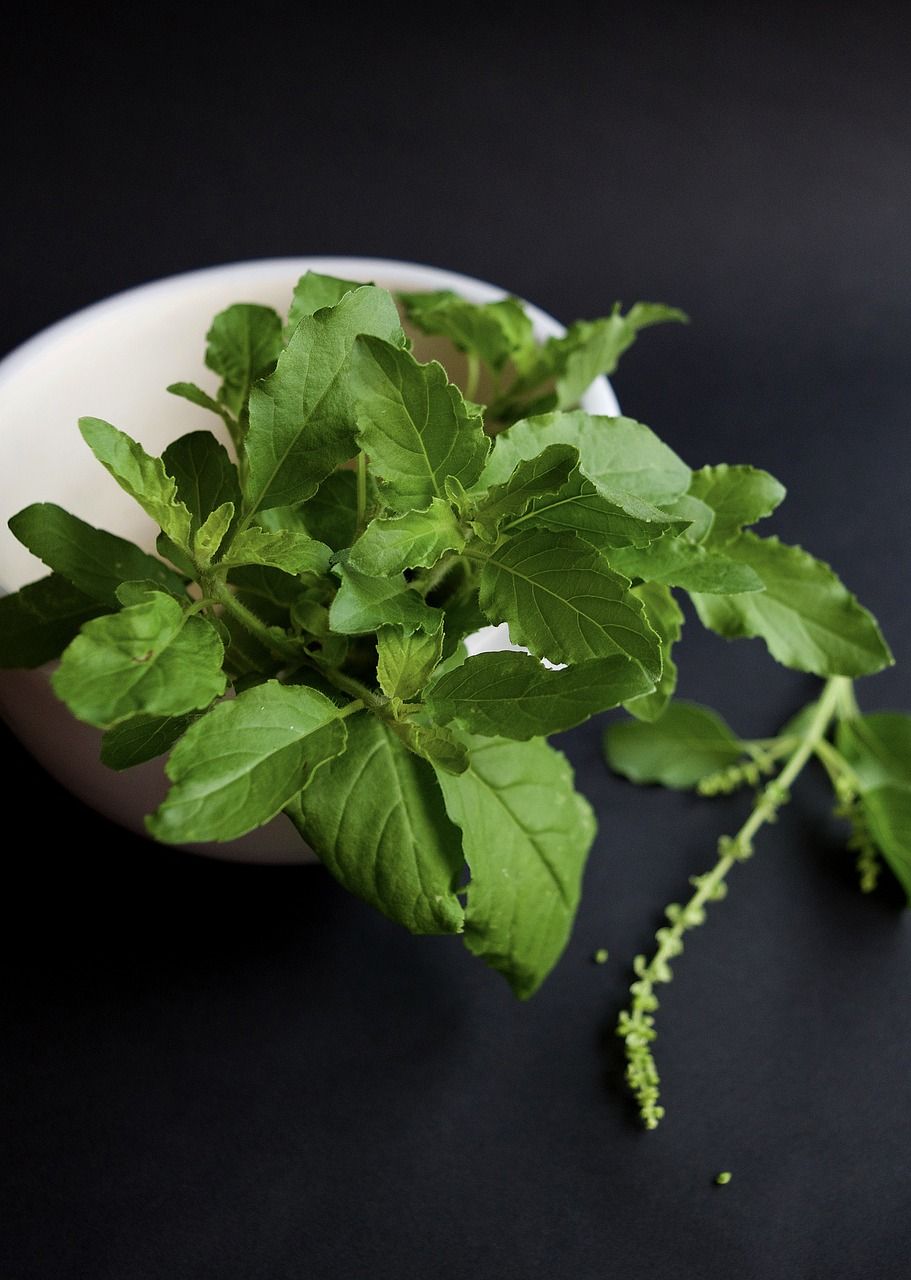From the content of the article
This popular herb has often been used for centuries for its impressive properties and proven health effects. This aromatic herb is also used as a spice in a variety of dishes and plays a key role in Italian and Thai cuisine. Housewives in Romania also use it to give a special taste to food.
This popular herb contains fenchol
The next time you pick fresh basil from the garden, remember that it’s great for brain health, too. Basil was considered a sacred and noble plant, as its name, “basil”, comes from the ancient Greek “basilikhon” which means “royal”.
Basil contains vitamins, minerals and antioxidants such as lutein, zeaxanthin, beta-carotene and beta-cryptoxanthin. Many of basil’s health benefits are due to these antioxidants, as well as its essential oils. Basil and terpene-containing herbs have antibacterial, antimicrobial and antioxidant properties
New research shows that fenchol, a natural compound in basil and other herbs, may protect the brain against Alzheimer’s disease. Fenchol is a type of terpene or natural compound that gives the plant its characteristic fragrance. This is why basil smells so good. It’s also why basil and terpene-containing herbs have antibacterial, antimicrobial, and antioxidant properties, according to Womansworld.
How can fenchol reduce the risk of Alzheimer’s disease?
In the study published in Frontiers in Aging Neuroscienceresearchers wanted to better understand the connection between the gut microbiome and the brain. They knew from previous studies that the microorganisms that live in our digestive tract play a huge role in metabolism, the endocrine system and immunity. They also knew that those microorganisms release chemicals that improve brain health.

But is it possible that chemicals outside the body can also improve brain health? Starting from this question, the research team wanted to see if fenchol protects the brain against Alzheimer’s disease.
Fenchol, a natural compound found in basil, reduces neurotoxicity in patients’ brains
Researchers from University of South Florida discovered a sensing mechanism associated with the gut microbiome that explains how fenchol, a natural compound found in basil, reduces neurotoxicity in the brains of Alzheimer’s patients.
Emerging evidence indicates that short-chain fatty acids (SCFAs)—metabolites produced by beneficial gut bacteria and the primary source of nutrition for cells in the colon—contribute to brain health. SCFA abundance is often reduced in elderly patients with mild cognitive impairment and Alzheimer’s disease, the most common form of dementia. But how this decline in SCFA contributes to the progression of Alzheimer’s disease was largely unknown.
SCFA travels through the blood to the brain. Once there, it activates a detection mechanism in the brain cells. As the study found, this activation helps the brain begin to clear any abnormal accumulation of amyloid beta (Aβ), which is the main ingredient in the “bad” plaque that accumulates in the brains of Alzheimer’s patients.
This popular herb containing fenchol destroys “zombie” cells
The research team narrowed down the field of observation from the 15 candidate compounds analyzed to just one: fenchol, a plant-derived compound that gives basil its special smell, and which bound best to the active site of FFAR to stimulate its signaling.
Fenchol did something extraordinary. Upon closer examination, the researchers found that this plant compound decreased senescent neuronal cells, or cells that stop multiplying but do not die. So they keep releasing chemicals that trigger inflammation. The inflammation can spread and damage neighboring cells. For this reason, scientists call them “zombie” cells. Alzheimer’s patients often have these zombie cells in their brains.
The authors said they cannot determine whether fresh basil is effective. They also haven’t yet determined the exact dose of fenchol that would benefit the brain the most.
Source: www.doctorulzilei.ro


